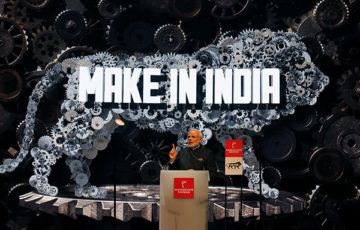 Ravinder Kaur in Aeon:
Ravinder Kaur in Aeon:
The early 1990s was a moment of fragile hope and anxiety in India. The nation had just ‘opened up’ its economy to join the world of free markets, a post-Cold War ‘end of history’ global world. The seductive formula held out the promise of foreign investments, high economic growth, and of unleashing the caged spirit of Indian enterprise. It also promised more consumer choices to Indian citizens, dreams of a better life and, most of all, a chance to set the nation’s course to resplendent 21st-century futures. The forward march to market liberalisation also entailed breaking away from India’s legacy of economic nationalism: the anticolonial economics of swadeshi (literally, ‘of one’s own nation’) or self-reliance. Swadeshi had dominated Indian economic policy and thinking since national independence, and it prioritised autonomy over the nation’s resources. The boycott of foreign-made goods was the most popular expression of swadeshi politics.
New Indian economic policy in the 1990s threw open the consumer market to foreign goods. Swadeshi-school economic thinkers termed it the ‘coca-colonisation of India’. In this dramatic transition to free-market capitalism, Coca-Cola became both a sign of the worldly pleasures now available to Indian consumers, and of the treachery of ‘selling out’ to foreign corporations. In 1977, Coca-Cola had been banned by the Indian state. The company was subsequently turned into a nationalist venture that sold an Indian brand of soft drinks called Thums Up. By the 1990s, Coca-Cola was not only back in the newly liberalised India, it bought the Indian brand to expand its operations in the market. The corporate sale of Thums Up to Coca-Cola illustrated how liberalisation and globalisation had displaced the principles of swadeshi economic nationalism. The free-market lobby, it was ruefully remarked, had ‘sold out to big business’ and turned its back on India’s anticolonial dream of economic Independence.
More here.
